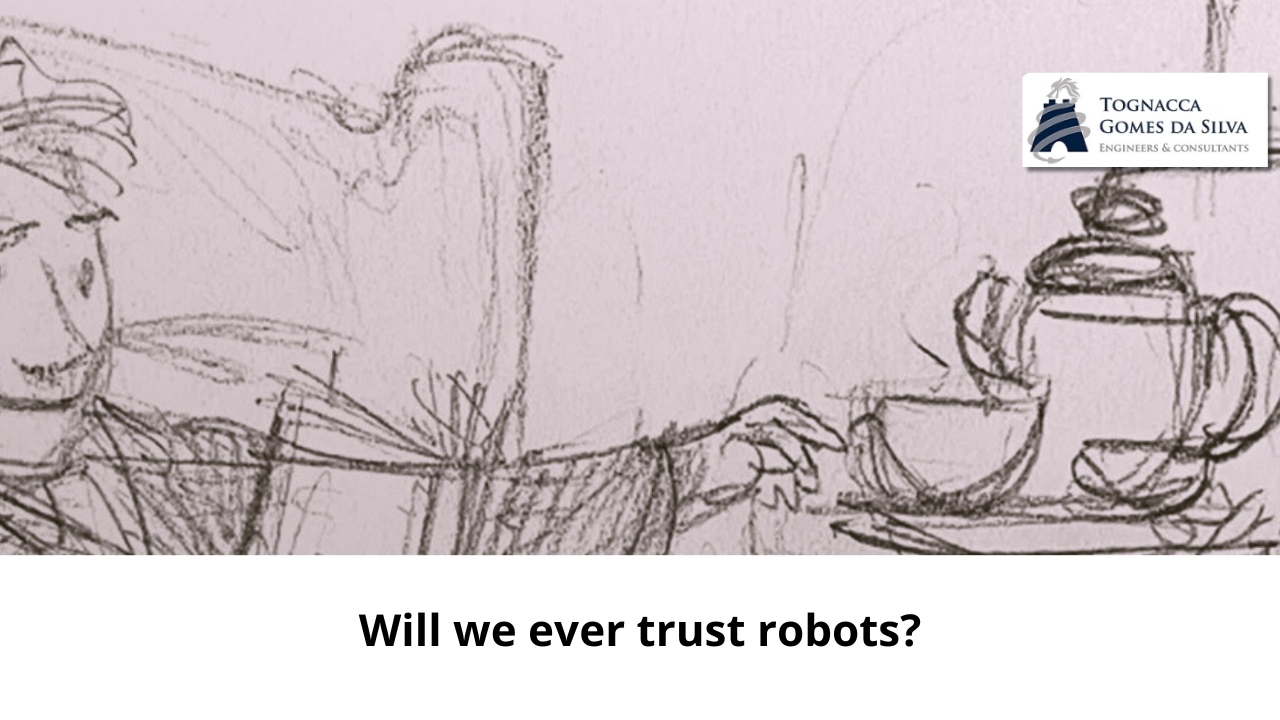The world appears to be on the cusp of a golden age for humanoid robots. Recent advances in Artificial Intelligence promise versatile and capable robots, similar to those only seen in science fiction: machines that can assemble cars, care for patients or tidy up our homes without specialized instructions.
This idea attracted enormous attention, capital, and optimism. Figure raised $675 million for its humanoid robot in 2024, less than two years after its founding. At a Tesla event in October, the Optimus robots overshadowed the autonomous taxi, which was supposed to be the star of the presentation. Elon Musk, CEO of Tesla, believes that these robots can build “a future where there is no poverty”. This may give the impression that extremely capable humanoids will, within a few years, be present in our homes, war zones, workplaces, borders, schools and hospitals, performing roles as therapists, carpenters, home caregivers and soldiers.
Despite this enthusiasm, recent advances may be more a matter of appearance than substance. Although advances in AI have made robots easier to train, they still cannot “sense” their environment, think about what to do next, and make decisions independently, as some viral videos suggest. In many of these demonstrations (including Tesla’s), when a robot pours a drink or cleans a counter, it is not acting autonomously but being controlled remotely by human operators, a technique known as teleoperation.
The futuristic design of these humanoids—with glowing eyes, digital faces, and imposing metallic forms inspired by dystopian Hollywood fictions—often makes them appear more advanced than they really are.
“I’m worried that we’re at the height of the hype,” says Leila Takayama, robotics expert and vice president of design and human-robot interaction at Robust AI. “There is a kind of show-off war between the big technology companies to show who can do more and better.” She highlights that roboticists who do not work with humanoids now need to justify their choices to investors.
Former OpenAI and Scale AI employee Shariq Hashme joined the race in 2021 with his robotics company, Prosper. The company is developing Alfie, a humanoid robot designed to perform domestic, hospital and hotel tasks. Prosper expects to sell Alfie for around $10,000 to $15,000.
For Hashme, trust is the main obstacle for humanoids to truly benefit society. Thus, he prioritizes creating a reliable robot, something humanoid, but without looking overly human.
This approach goes beyond appearance. Prosper is shaping the way Alfie moves, communicates his intentions, performs tasks and even incorporates an internal code of ethics that defines the instructions he will accept or refuse from his owners.
As visionary as it may seem, focusing on trust may be premature. Prosper has raised just a fraction of the capital of companies like Tesla and Figure and is months, if not years, away from launching a product. However, this strategy reflects the realization that, despite all the investment and research, few of us would feel comfortable with a humanoid robot in our living room today.
A major challenge in Alfie’s development is his ability to act independently. Hashme predicts that its first version will only be able to perform 20% of tasks autonomously. The rest will be supervised by Prosper “remote assistants,” many of them based in the Philippines, who will be able to control the robot’s movements remotely.
This model raises concerns about the economic viability of relying so heavily on human intervention, as well as ethical questions about the use of labor in low-income countries. Hashme, who previously worked at Scale AI, a company often criticized for its labor practices, believes Scale’s success is an indication that this model can work.
Alfie’s success or failure will reveal a lot about society’s willingness to accept humanoid robots into our private spaces. Are we ready for a new work dynamic, in which workers from low-income countries operate robots in our homes? Can we trust these devices to protect our families’ private data and images? Above all, will these robots really be useful?
The journey to gaining people’s trust is a fundamental challenge for humanoid robots like Alfie, but only time will tell if they can overcome their limitations and live up to the hype that surrounds them.
To address trust concerns, Shariq Hashme recruited Buck Lewis. Before working with robots, Lewis had another challenging task: designing a mouse.
In 2001, Lewis was a renowned animator at Pixar, specializing in creating characters with universal appeal, something crucial for studios investing in high-budget projects aimed at global audiences. He helped bring trucks and sedans to life in the film Cars and created characters for several DreamWorks and Disney films. But when Jan Pinkava pitched the idea for Ratatouille—the story of a rat aspiring chef—Lewis faced a huge challenge. Rats evoke fear and repulsion, to the point that their name is synonymous with betrayal. How to turn a despised rodent into an adorable chef?
“It’s a deep-rooted aversion, because rats are horrible,” Lewis said. “For this to work, we needed to create a character that reprograms people’s perceptions.” He imagined scenes like a group of rats organizing an impromptu, lively dinner on the streets of Paris. The result was Remy, the Parisian mouse who, after the film’s release in 2007, not only won over audiences but also boosted demand for pet mice globally.
Two decades later, Lewis has changed careers and is now responsible for shaping every aspect of the character of Alfie, the Prosper robot. Just as Remy transformed the image of mice, Alfie is Lewis’s attempt to alter the perception of humanoid robots from futuristic and dangerous machines to reliable and useful helpers.
Prosper’s approach reflects a fundamental robotics concept articulated by Rodney Brooks, founder of iRobot: “A robot’s visual appearance makes a promise about what it can do and how intelligent it is. It must meet or slightly exceed that promise, or it will not be accepted.”
This premise presents a major challenge: humanoid robots create the expectation that they will behave like humans—to an almost unattainable level. Therefore, some experts reject the idea of designing robots with human shapes, arguing that robots can be efficient in practical tasks without the need for anthropomorphization.
“Why are we so enamored with the idea of creating a replica of ourselves?” asks Guy Hoffman, an expert in human-robot interactions and associate professor at Cornell University.
The functional argument for robots with human characteristics is that our environments were designed for humans, and humanoid robots would have an easier time navigating them. But Hoffman believes there is also a symbolic reason: “By designing a humanoid robot, we are telling a story that it is in some way equivalent to us.”
In Alfie’s physical design, Prosper adopts common humanoid aspects but rejects others. Alfie will have wheels, not legs, for stability reasons, but will have arms and a head, mounted on a vertical column that resembles a trunk. It will have two emergency stop buttons, but nothing in the design will try to hide the fact that it is a robot.
“The opposite of being trustworthy would be designing a robot to imitate a human and measuring its success by how well it fooled you,” Lewis said. “That, to me, is dishonest.” Despite this, other humanoid innovations seem to value the idea of deception.
In 2023, ultra-realistic humanoid robots appeared at an NFL game in California; after a viral video, Disney revealed that they were just people in costumes, promoting a movie. Later, researchers at the University of Tokyo developed artificial skin, made from human cells, to cover robot faces, bringing them even closer to human appearance.
Lewis thinks of Alfie as an ambassador for a future civilization in which robots embody the best human qualities. Alfie is neither young nor old, but has the wisdom of an in-between age. Its main purpose is to serve people, respecting limits, being discreet and gaining trust.
“He’s an entity that’s nonhuman, but he has a sort of sentience,” Lewis says. “I’m trying to avoid seeing it as something directly comparable to human consciousness.”
Lewis imagines Alfie as masculine, inspired by archetypal butlers from his childhood, like Batman’s Alfred. Prosper also hired Fitzgerald Heslop, a royal butler with decades of experience in high-end hospitality, to shape Alfie’s approach to service.
Heslop defines excellent service as the ability to create memorable and comfortable moments. Quoting Gandhi, he states: “The best way to find yourself is to lose yourself in the service of others.” Prosper hopes that Alfie, with this principle, can transform the relationship between humans and robots, making coexistence more natural and acceptable.
Although I have no experience in robotics…
Heslop is attracted to the idea that in the future, home robots could deliver impeccable levels of service, and believes Prosper has identified the right priorities to get there. “Privacy and discretion, attention to detail and a meticulous eye are critical factors for the company’s overall objective,” he states. “And, most importantly in this case, for Alfie.”
Dreaming about Alfie in sketchbooks is one thing; building it is another. In the real world, the first version of Alfie will rely on remote assistants, mostly working abroad, to carry out around 80% of household tasks. These assistants will use interfaces similar to video game controllers to guide the robot’s movements, drawing on data from Alfie’s sensors and cameras for tasks such as washing dishes or cleaning a table.
Hashme states that measures are being taken to protect users’ privacy during teleoperation of the robot. This includes removing sensitive objects and faces from recordings, as well as allowing users to delete any footage. Ideally, Hashme wrote in an email, Alfie “will often simply look away from any potentially private activity.”
The AI industry has a troubling history when it comes to using workers in low-income countries to perform the hidden work needed to build advanced models. Reports indicate that workers in Kenya were paid less than $2 per hour to manually filter toxic data, including child sexual abuse and torture content, for OpenAI. Scale AI’s operation in the Philippines, which Hashme helped manage, was criticized in 2023 by human rights groups for failing to respect basic labor standards, including delays and failed payments, according to a Washington Post investigation.
OpenAI responded that this type of work “needs to be carried out humanely and voluntarily”, with “ethical and welfare standards for data annotators”. Scale AI stated that in the last year alone, it has paid hundreds of millions of dollars to employees, providing flexible work options and economic opportunities, and that 98% of payment-related issues have been successfully resolved.
Hashme said he was not aware of the allegations against Scale AI during his time at the company, which ended in 2019. However, in an email, he said: “We made mistakes, which we quickly corrected and take seriously.” He highlighted that a common problem in companies that outsource sensitive work is the lack of reliable management and inadequate incentive programs, which undermine workers’ confidence. “With a more experienced team, close management and more transparency throughout the system, I believe we will do a much better job”, he concluded.
It is important to highlight the circumstances surrounding Hashme’s departure from Scale AI, where he was hired as the company’s 14th employee, in 2017. According to court documents, in May 2019 Scale noticed unauthorized withdrawals of US$140, totaling around US$ $56,000 over five months. An investigation revealed that Hashme was responsible. In October of that year, he pleaded guilty to wire fraud.
Before his sentencing, Alexandr Wang, CEO of Scale AI, wrote a letter to the judge in support of Hashme, as did 13 other employees. Wang said he believed Hashme was genuinely remorseful and that the company would not have pursued charges if it had known he was guilty. Hashme was sentenced to three months in federal prison in 2020, served his sentence and returned the money.
Today, Wang is one of the main investors in Prosper Robotics, alongside other names such as Ben Mann (Anthropic), Simon Last (Notion) and Debo Olaosebikan (Kepler Computing).
Hashme recognizes that large-scale teleoperation by foreign workers could cause a seismic shift in work, allowing even highly localized physical functions such as hotel cleaning or hospital care to be performed remotely. This goes against the very idea of a trustworthy robot, as its effectiveness would be linked to anonymous workers in other countries, often poorly paid.
Hashme also mentioned the intention to use some of Prosper’s profits to compensate people whose jobs are affected or replaced by Alfies, but has not yet offered details on how this would work. Additionally, he is considering how to gain the trust of customers who will allow the robot into their homes.
“We don’t want you to trust the company or the people it employs too much,” says Hashme. “We want you to trust the device, and the device is the robot, that will make sure the company doesn’t do something it shouldn’t.”
Although the first version of Alfie may not achieve his highest aspirations, Hashme firmly believes that the robot can serve society and people as long as they can trust him.
( fonte: MIT Technology Review)



